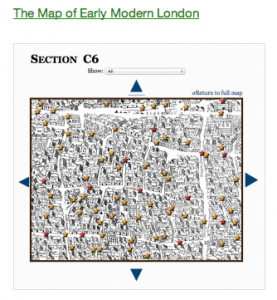
The new format of the sample DH projects webpage is now very easy to navigate and is user-friendly. Upon visiting the site, I noticed several categories listed at the top of the webpage. They included: archive, visualization, mapping, digital edition, network analysis, textual analysis, and audio analysis. Users can click on the each individual category to find sample digital humanities projects that fall under the selected category. It is now much easier to explore the webpage due to its recent re-organization that is beneficial to all users. On the sidebar of the sample DH projects webpage, there is a section called a “Featured Project.” As of this blog post, the featured project was “The Great Parchment Book.”

One specific category is “archive.” Projects under this category are “Old Weather”, “Lincoln at 200”, and “Database of Indigenous Peoples in North America.” These contain artifacts that were scanned and put into a digital format. For example, in “Old Weather” this is a logbook for a ship that became trapped in ice.
While the average student may not have access to the original copy of the logbook, it is now more easily accessible through the use of digital humanities. Damage by human use is less likely to happen due to the fact that less and less people are physically touching the artifacts. The use of digital humanities is also beneficial in that it allows the researcher to be more organized through digital means. Copies of the artifacts create the opportunity to go back to the source multiple times to get most of the information that the artifact provides.
Digital humanities has a lot to offer in terms of advantages to the humanists; yet, there are some drawbacks when it comes to the use of technology. First of all, scanning the artifacts has a lot of room for error. That is something I will need to take into consideration and try to limit when I am using this process. Also, with transcribing the artifacts digitally, it leaves a lot of room for human error and subjectivity. Again, with my best efforts, I will try to not let this happen. Despite some sources of error with the use of digital humanities, it is very beneficial to students and researchers.

